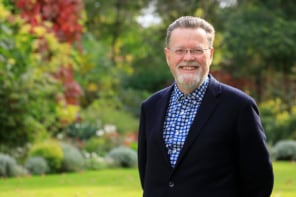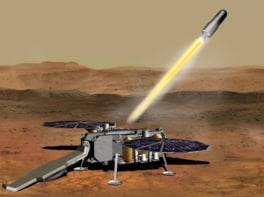
Political tensions between the US and Russia due to the ongoing Ukraine crisis have started to hit scientific exchanges between the two countries. The US Department of Energy (DOE) has already banned Russian scientists from working in its laboratories and delayed or withheld permission for US government scientists to attend meetings in Russia. The US government has also suspended almost all joint activities on space science. The moves follow Russia’s annexation of Crimea in March and its continued support for anti-government fighters in eastern Ukraine. Since then, the US and Europe have imposed sanctions on Russian individuals and companies.
Limitations on scientific exchanges with Russia have also been introduced, including a temporary end of an accord on nuclear issues. Signed last September by US energy secretary Ernest Moniz, who is a physicist, and his Russian counterpart Sergey Kirienko, the accord gave Russian scientists access to the Los Alamos National Laboratory – one of the three US nuclear labs – in return for similar access to Russian nuclear facilities. Now, the DOE has cancelled the visits and has also prohibited its US employees from travelling to Russia, except to deal with nuclear security, weapons of mass destruction and “top-level national interests”.
Strained ties
The clampdown has caused uncertainty among several prominent physicists, such as those planning to attend the International Atomic Energy Agency’s conference on fusion in St Petersburg in October. So far, no US attendee has been refused permission to travel to the meeting, but nor have any received permission to go. Siegfried Hecker, a former director of Los Alamos, warns against the deteriorating situation regarding nuclear issues. “Co-operation is needed to deal with some of the lingering nuclear safety and security issues in Russia and the rest of the world, with the threats of nuclear smuggling and nuclear terrorism, and to limit the spread of nuclear weapons,” he says.
The DOE has also banned Russian citizens indefinitely from visiting DOE labs, including non-nuclear weapons facilities such as the Brookhaven National Laboratory – although it has allowed exceptions for scientists already in the US or on their way. The policies have created an atmosphere of concern especially among Russian-born scientists working in the US. “Russian scientists feel that we are under suspicion – those working in the US are afraid to make moves that may be viewed as politically motivated,” says Ukraine-born Artem Oganov, director of the Centre for Materials by Design at Stony Brook University and president of the Russian-American Scientists Association.
Limiting knowledge?
Oganov told physicsworld.com that he is “very seriously” thinking about returning to Russia and that his association is “afraid” to take funds from Russia for its annual conference in November, for “fear of being accused of being part of the KGB as history knows examples of similarly ridiculous accusations at the time of the cold war”. “What is happening now in Ukraine is a human tragedy that also brings a huge loss to science,” he adds. “I feel that Western sanctions, limiting exchange of scientific knowledge with other countries, are counterproductive and immoral. We have no right to limit scientific knowledge.”
In a statement, a DOE spokesperson noted that the department reviews each area of co-operation internally before making a decision whether it can continue or should be postponed until a later date. The statement added that the DOE has continued “its critical bilateral nuclear non-proliferation activities in a number of key areas”, and that “co-operation with Russia remains an essential element in the global effort to address the threat posed by nuclear terrorism”.
The move by the DOE follows US president Barack Obama’s decision in April to restrict scientific exchanges in space science by suspending all government visits between NASA and Roscosmos, the Russian space agency.
The administration excluded only work on the International Space Station (ISS), where currently the US relies on Russia’s Soyuz rockets to take its astronauts to the station. Russia responded in May by after announcing a ban on exports of RD-180 engines that the US uses on its Atlas V rockets to launch satellites into space. Dmitry Rogozin, deputy prime minister and head of the Russian space agency, added that Russia will no longer permit NASA to use the ISS after 2020.
One bright spot, however, is the continuation of a programme run by the Massachusetts Institute of Technology that sends its students – mainly physical scientists and engineers – to work in companies, universities, and research institutions in Russia. “We decided last spring not to let high-level politics to get in the way of this important travel,” says Elizabeth Wood, co-director of the programme. “So far we’ve had no pushback from the governments.”



